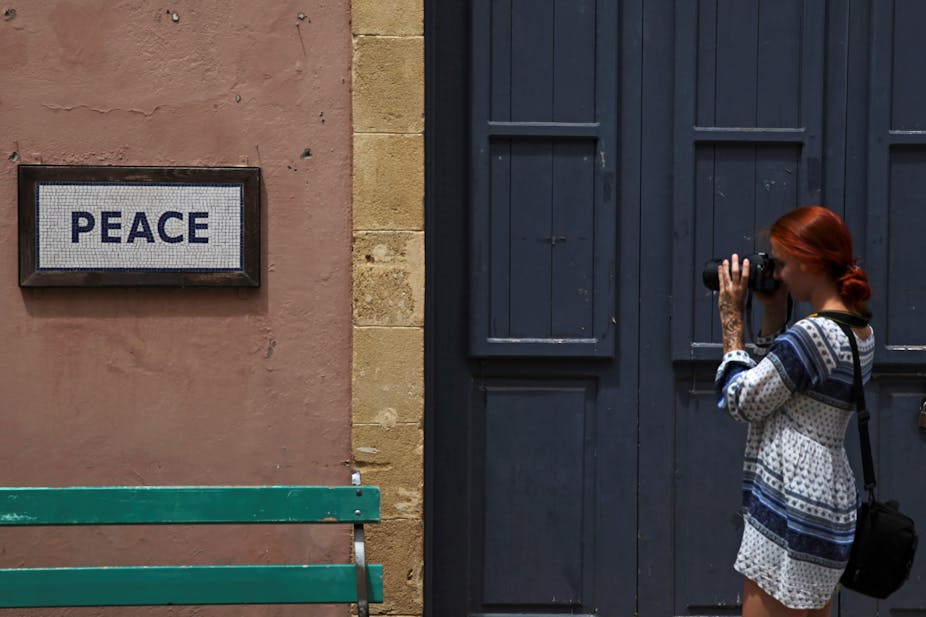Watching the news about Colombia’s referendum from Cyprus, I could not help but think that the two countries seemed strangely close.
After the rejection of the peace deal in Colombia, and after the global spotlight has moved on, there seems to be an assumption that things would now go back to normal. But from my experience in Cyprus, the divisiveness that attends an event of this significance makes normality very difficult.
Peace negotiations in Cyprus are entering an intensive phase. Nicos Anastasiades, the president of the Republic and Greek-Cypriot leader recently made a reference to Yes and No voters, saying that he hopes both camps would be pleased this time. Anastasiades was referring to the country’s last referendum, held in 2004, when Greek-Cypriots rejected a UN-brokered peace plan, inaugurating a new series of negotiation rounds.
The majority of Turkish-Cypriots had voted in favour of the plan, which had come after 30 years of physical separation and 40 years after the installation of a UN force to quell inter-community violence, escalating from disagreement over the sharing of power after the establishment of the republic in 1960.
By referring directly to Yes and No voters, Anastasiades drew a painful line between that previous experience 12 years ago, and what can be expected in the near future.

Negotiations are said to be closing soon, and a new referendum is expected in 2017. Even though projected referendum dates have been proven wrong in the past, the major sign of change is the mounting political polarisation among both Greek- and Turkish-Cypriot communities.
Life after the referendum
In a collective analysis of the Brexit referendum, along with fellow anthropologists Madeleine Reeves and Jane Cowan, I commented on the paradoxical workings of democracy regarding referendums and the problematic nature of the politics that we have come to associate with them.
But however worrying the workings of a referendum itself, all views agree that what comes after is even more so.
A referendum is not simply a dichotomous choice with high stakes. Elections in two-party systems are also that – and if we are to take the current campaign in the US as example, they can also be ruthlessly polarising. But elections have a finite horizon, at least in theory. The choice can, in four, five or six years’ time, theoretically at least, be undone. Of course, experience tells us that wars are more easily started than finished, rights taken away than reclaimed, wealth distributed upwards than downwards.
In referendums, most of the time there is no Plan B; a position of supposed “normality” takes over after results, but this is no return to “ordinary” life. The reaction is often same as what Veena Das has shown to happen after violent events.
In Greece in 2015, austerity returned “as normal” even in the face of a referendum that rejected it.
After the Brexit vote in the UK, the quest for a smooth exit seems more and more a quest to remain “normal”. The hope or worry, depending on where you stand, is that Brexit will not be complete, or be postponed, even abandoned, or proven impossible, or at the very least negotiated into a form that does not radically depart from the UK’s existing relations with the EU.
The reactionary votes registered in both the Greek and British referendums showed a desire to explode the system and its representatives.
In the aftermath, “normality” becomes messier perhaps, but the system is entrenched – austerity has not gone away in either country, and sovereignty has not been regained. The tangible change is even messier vis-a-vis economics and rising racism in the UK, while the degree to which a discourse of solidarity in Greece is staving off the far-right cannot be taken for granted.
The difficult quest to live ‘normally’
A peace referendum is different still: it offers a new governing apparatus, new justice mechanisms, perhaps a new sovereignty (rather than more or less of it, as in Greece and the UK). A reactionary vote would by definition be conservative – a vote to maintain the system – not an after-effect of racist or populist politics.
But the crucial point here is that this maintenance is never a return to “normality”. It is instead a continuous attempt to reconcile with the difficult arguments that one won or lost, with the uncertainty of their correctness, with the political one that we have learnt to forego in everyday life but that have come to define who we are vis-a-vis friends and others in that short period before the vote.
Everyone I know who has voted in a referendum remembers the difficult conversations with parents, siblings, aunts, or friends that followed. Greek-Cypriot family gatherings were awkward for years after 2004. Feast tables disintegrated easily in argument or fell silent.
And whatever patching-up eventually took place has been very rapidly disintegrating in recent weeks. As arguments heat up for and against an imagined settlement (for nothing has officially been publicised yet), friends speak more and more of distress after family meetings and friendly dinners - and of an uncanny feeling that they know this discomfort well.
I wonder what “everyday” might be looking like today on the streets of Bogota and the villages nearest and farthest from the conflict. At the same time, I am reflecting on how a return to “normal” after a referendum in Cyprus will be anything but.

